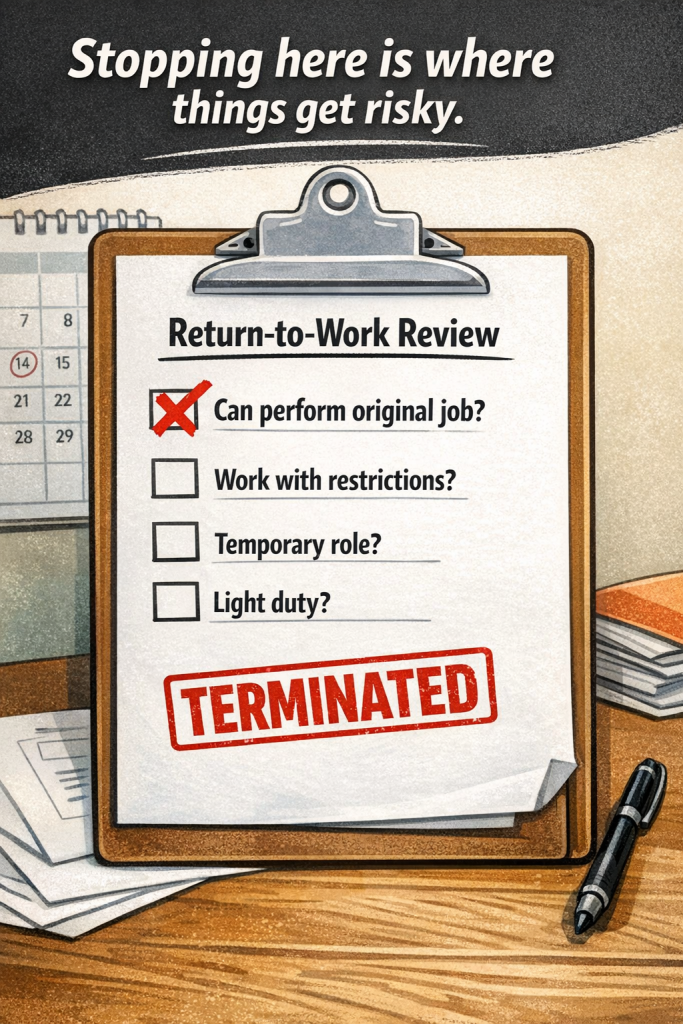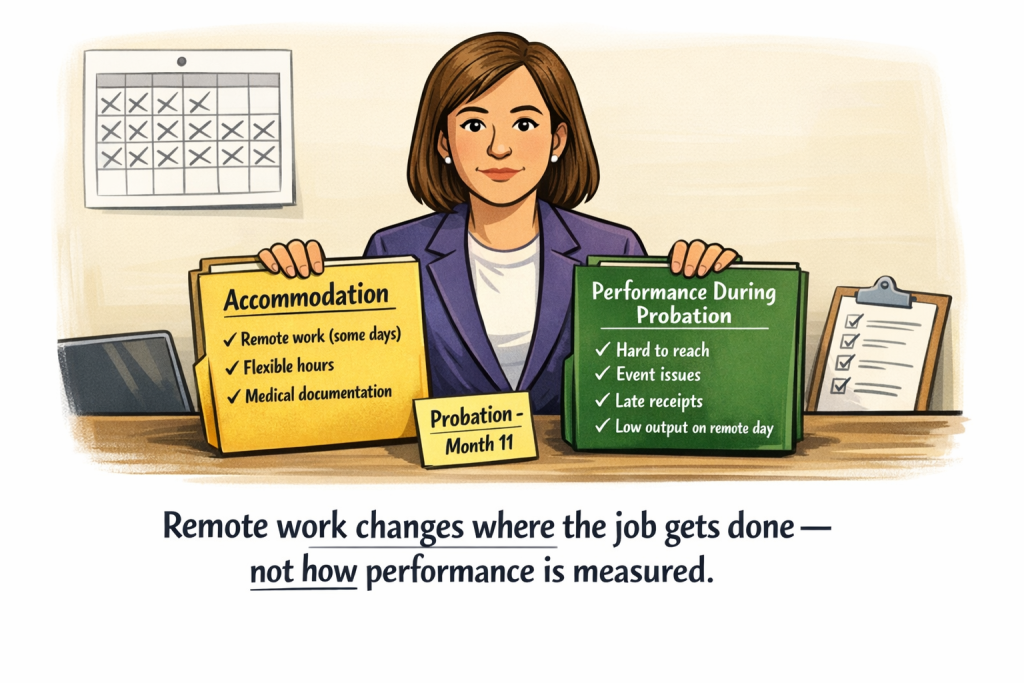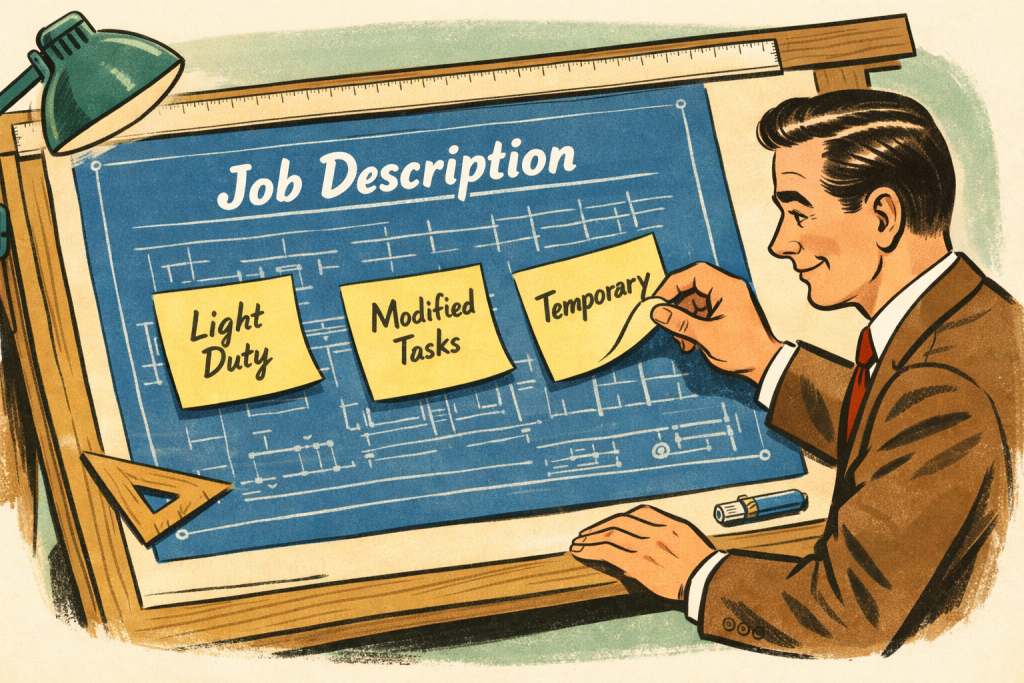Search
When Employers Decide Accommodation Is Impossible and Everything After That Gets Risky
Deciding too early that accommodation is impossible can shape everything that follows. This case shows why courts often let juries sort it out.
In a recent ADA decision from the Northern District of Illinois, an employer decided an injured employee could not return as a bus operator under her medical restrictions. After that decision, the employer relied on its absence-without-leave policy to terminate her. The court refused to end the case at summary judgment. Continue reading
 The Employer Handbook Blog
The Employer Handbook Blog












